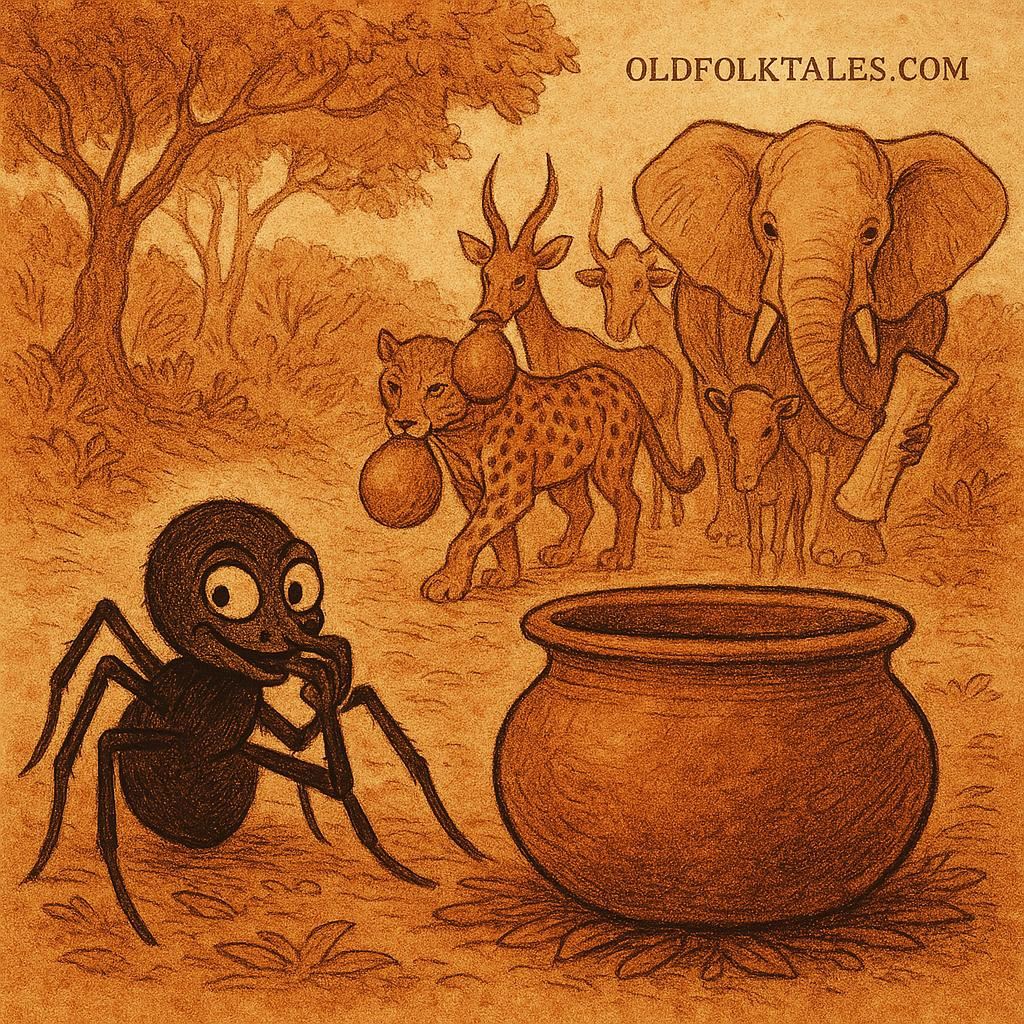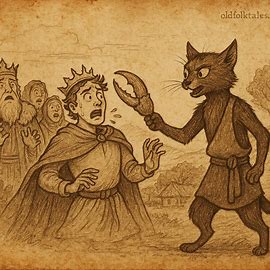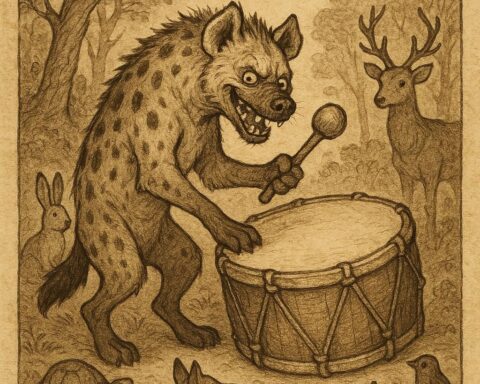Long ago, when the animals lived together in villages and shared their food, there was one among them who was known for his cleverness and trickery. This was Spider. He was small, but he was quick of mind, and he often used his wit to take more than his share. The animals knew him well, but many times they were fooled by his promises and smooth words.
One season, food became scarce in the forest. The rains had not fallen, and fruits were harder to find. The animals gathered to decide how they might survive together. “Let us hunt and cook as one,” Leopard suggested. “In this way, no one will go hungry.” The animals agreed, and they chose a day to prepare a great feast.
When Spider heard of this plan, his eyes glowed with greed. He thought to himself, “If I play my part wisely, I will eat more than all the others combined.” He smiled, for he had already begun to shape a trick in his mind.
READ THIS: The Quarrel of the Beasts and the Birds
On the day of the feast, each animal brought something. Elephant carried heavy bundles of bananas. Antelope brought tender roots. Monkey gathered ripe fruits. Even the small ones, like Rat and Squirrel, added what little they could. Together they prepared a great pot of food that smelled so rich it made the forest sing with hunger.
Spider, however, pretended to be weak. He came late, carrying nothing. “Friends,” he said with a weary sigh, “I am small and cannot carry as you do. But I will help by guarding the pot while you fetch water.” His voice was gentle, and his eyes looked honest. The animals agreed, for none suspected him.
The moment the others left to bring water from the stream, Spider hurried to the pot. He dipped his hands in quickly and ate greedily. The taste filled his belly, and he laughed softly to himself. To hide his crime, he stirred the food and smoothed the surface so it looked untouched. By the time the animals returned, Spider sat quietly, smiling as if nothing had happened.
This happened again and again. Each time the animals left the pot, Spider found a way to steal. His trick was simple, yet none noticed because he was small and acted so innocent. But greed has a way of showing itself. On the final day of the feast, Spider grew careless. In his hurry, he left stains of food around his mouth.
Leopard, sharp-eyed and suspicious, saw it. “Spider,” he growled, “why does your mouth shine with oil when none of us have eaten yet?” The other animals turned and gasped. Spider tried to wipe his mouth and laugh it off, but the truth was clear. He had been stealing while the others worked and waited.
Anger spread through the group. Elephant stamped the ground. Antelope shook his horns. Even the small animals raised their voices against Spider. “We trusted you,” they cried. “Yet you have tricked us and taken what belongs to all.”
Ashamed but still sly, Spider tried to explain, “I only tasted to be sure the food was good.” But none believed him. From that day, the animals decided that Spider would no longer be trusted with food. They learned to watch him closely, for his cleverness could not be separated from his hunger.
And so it is told that Spider, though admired for his wit, is never fully trusted. His tricks serve as a warning that not all cleverness is good, and that greed always betrays itself in the end.
Moral Lesson
The story of The Spider’s Trick on the Animals teaches us that greed and deceit always come to light. Spider thought his cleverness would keep him safe, but in the end his own carelessness revealed the truth. Wisdom is not in taking from others but in sharing fairly. Communities thrive on trust, and those who betray it lose respect, no matter how clever they may seem.
Knowledge Check
What is the main lesson of The Spider’s Trick on the Animals?
The story shows that greed and trickery may succeed for a time, but they are always discovered in the end.How did Spider manage to steal from the pot of food?
He offered to guard the pot while the other animals fetched water, using the chance to eat in secret.Why did the animals trust Spider at first?
Because he appeared small, harmless, and spoke gently, hiding his greed behind innocent behavior.How was Spider finally caught?
Leopard noticed food stains around Spider’s mouth, proving he had been stealing from the pot.What lesson did the animals learn from Spider’s trick?
They learned never to trust him with shared food again and to be cautious of clever words without honest actions.Why is Spider remembered with both admiration and suspicion?
Because his wit was undeniable, but he used it for selfish gain rather than the good of the community.Cultural Origin: Gabonese folktale (Mpongwe Tribe), recorded by Robert H. Nassau in Where Animals Talk: West African Folklore Tales (1914).






